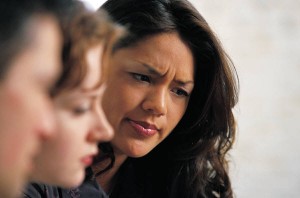 When we are constantly angry we tend to be reactive. And when we are reactive we may not choose the best response.
When we are constantly angry we tend to be reactive. And when we are reactive we may not choose the best response.
We would like to think of ourselves as rational and level headed. Yet when a car cuts us off on the freeway, we find ourselves wanting to get even. When our spouse does not acknowledge appreciation for all the things we do, or people at work just keep taking advantage of us, we want to retaliate.
There continues to be that child in us that wants revenge when life isn’t fair.
When anger is often our first response to events, it may be because there have been many times in our past when we have been angry and have not been allowed to express it in any way.
Perhaps we have been treated unfairly and our good intentions and sacrifices have been dismissed as nothing. Wounds from childhood run deep. While they may be buried in our sub-conscious, we continue to be influenced by them.
But we can make a choice to heal old wounds, let go of past anger and choose a different response. We do not need to be a victim of our past.
If you find you are feeling angry a lot of the time, ask yourself
• What were you told about anger when you were little?
• List the times in your past when your anger was not expressed or acknowledged
• Where is your anger directed: toward yourself, others, your parents, boss, your past, etc.
• When you feel angry, does the situation warrant that feeling?
Nowhere do we see anger more often than when we fall into a “victim role.” Being a victim takes away our personal power to make changes and choices. Only children are true victims.
Anger fuels resentment. Resentment becomes a “grievance story” that we rehearse and repeat over and over again. Grievance stories begin to dominate our life robbing us of joy, pleasure and peace. It gradually spreads out to an overlying attitude.
Even when we feel we have limited options we have the ability to choose our responses. Even when events make us feel angry, we do not have to keep that anger.
Marlene Anderson, MA, LMHC, NCC








